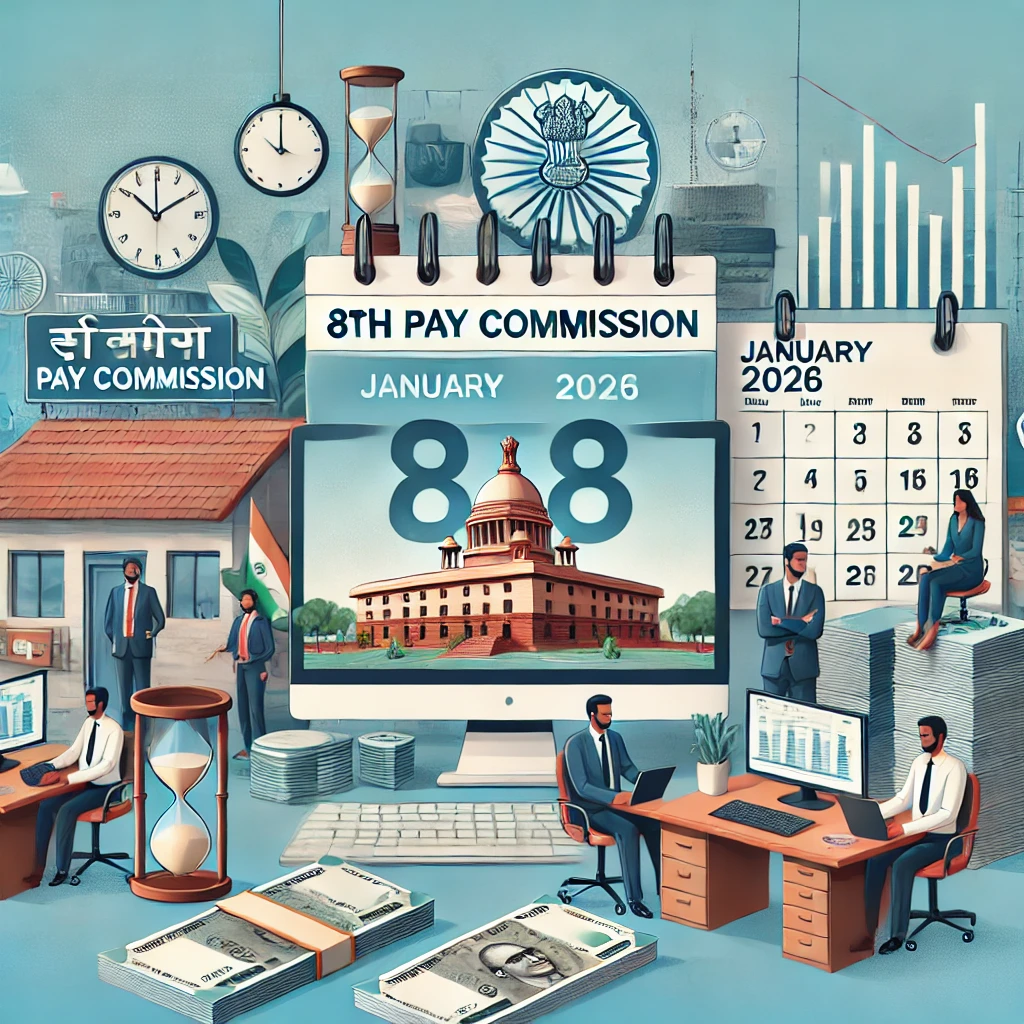The implementation of the 8th Pay Commission is a topic of significant interest among government employees across India. The pay commission serves as a cornerstone for revising the salaries, pensions, and allowances of government employees, impacting millions of households directly. With the potential for a substantial economic ripple effect, understanding its objectives, applicable date, and influence on various job sectors is crucial.
What is the Pay Commission?
The Pay Commission is a government-appointed body tasked with reviewing and recommending changes to the salary structure of central government employees and pensioners. Since its inception in 1947, India has witnessed seven pay commissions, each bringing substantial reforms to employee compensation. The most recent, the 7th Pay Commission, was implemented in January 2016 and provided a 23.55% hike in salaries and pensions.
As the implementation of the 8th Pay Commission looms on the horizon, speculation about its recommendations and timeline has generated considerable buzz.
Expected Applicable Date for the 8th Pay Commission
Although there has been no official confirmation, it is widely anticipated that the 8th Pay Commission will be constituted around 2024 or early 2025. Historically, pay commissions are set up every 10 years, with their recommendations implemented shortly after submission. If this trend continues, the 8th Pay Commission’s recommendations could be applicable starting January 1, 2026.
The Union Cabinet, led by Prime Minister Narendra Modi, has already approved the formation of the 8th Pay Commission to revise the salaries and pensions of central government employees and retirees. This decision is set to benefit approximately 50 lakh employees and 65 lakh pensioners, with the commission’s recommendations expected to be implemented by January 1, 2026. (Livemint)
Key Objectives of the 8th Pay Commission
The 8th Pay Commission will likely focus on:
- Adjusting Salaries for Inflation: With inflation impacting purchasing power, a significant salary revision is expected.
- Restructuring Allowances: Existing allowances may see updates, ensuring they remain relevant to current economic conditions.
- Improving Pension Benefits: Enhancements to pension schemes could provide greater financial security for retirees.
- Promoting Parity Among Job Categories: Addressing disparities in pay scales across different job roles within government sectors.
While the exact percentage of salary hikes has not been disclosed, reports suggest that the minimum basic salary could be increased from ₹18,000 to ₹51,480, depending on the fitment factor applied. (Livemint)
Impact on Jobs and Recruitment
The implementation of the 8th Pay Commission is poised to have a profound impact on job opportunities within the government sector. Enhanced salaries and benefits could make government jobs more attractive, leading to increased competition for positions. Key areas to watch include:
- Public Sector Undertakings (PSUs): Improved compensation packages may boost recruitment in PSUs.
- Education and Healthcare: Government-run schools and hospitals could see a surge in applications due to better pay and allowances.
- Administrative Services: Jobs in IAS, IPS, and other administrative roles might witness higher application rates, thanks to the allure of a revised pay structure.
Additionally, the private sector could feel the ripple effects, with companies potentially needing to offer competitive salaries to retain talent.
Anticipated Challenges
While the 8th Pay Commission promises numerous benefits, it is not without challenges:
- Financial Strain on Government: Implementing recommendations could place a significant burden on the national exchequer.
- Balancing Inflationary Pressures: Higher salaries could contribute to inflation if not managed prudently.
- Ensuring Equitable Benefits: Balancing the interests of various employee categories will be crucial to avoid discontent.
Conclusion
The 8th Pay Commission represents a pivotal moment for government employees and the broader Indian economy. Its recommendations will likely shape the financial future of millions, influencing job trends and economic policies. As discussions evolve, keeping abreast of official announcements is essential for all stakeholders.
For those seeking more information on government job trends and pay scales, resources like Government Jobs Portal and Pay Commission Reports provide valuable insights.
